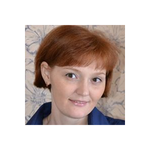Russian Names
How many names do Russians have? Frankly speaking, a lot! Let's figure it out - who is who in Russia :)
Russian names
Officially, we have three name - a family name (фамилия), a first name (имя) and a father's name (отчество). For this purpose there is a magic abbreviation which you'll be able to find in official forms or applications = ФИО
Example: Иванов Иван Иванович
- Фамилия. These names can be male or female. Usually a male фамилия ends with a consonant (Ex: Иванов) and a female one - with the vowel letters -A or -Я (Ex: Иванова).
More examples: Путин - Путина, Чайковский - Чайковская, Петров - Петрова.
But this rule works only with pure Russian family names. If a family name is borrowed from a foreign language (German, Korean, Ukranian, etc.) it has the same form for both genders and we never change endings.
Examples:
German - Майер Александр and Майер Александра
Korean - Цой Виктор and Цой Анита
Ukranian - Нетребко Павел и Нетребко Анна
- Имя. This is the given name that parents select when a baby is born. And as in many European languages, there are names for boys or girls, i.e male and female forms.
Example: Александр and Александра, Евгений and Евгения
As you can see from the example above, they follow the same grammar rule as family names - male end with consonants and female have vowel endings. But this rule works only for official given names because we also have short versions or nicknames. Most names have one commonly used nickname.
For example, I am Ольга, officially. But my parents, friends or other close people call me Оля as well. And that's my nickname. Or my husband's name is Сергей but in everyday situations I call him Серёжа.
There can be lots of nicknames for one official given name, starting from super sweet forms and finishing with those to bully a person. For example: Екатерина can be called as Катя, Катенька, Катюша (positive) or Катька, Катюха (negative).
Coming back to the grammar point of nicknames. Foreigners will have to memorize nicknames because most of male nicknames as well as female ones end with vowels.
For example: Паша (from Павел, i.e male), Боря (from Борис, i.e male), Маша (from Мария, i.e female) or Настя (from Анастасия, i.e female).
By the way, some names share one nickname form for both genders. Examples: Александр and Александра are both Саша. Евгений and Евгения are both Женя.
- Отчество. This name is a part of a Russian's full name as it appers in all documents or IDs that's why it is used only with first names in a full form and never with nicknames. If you need to address to a Russian person in a formal situation (oral or written), do it by his/her имя-отчество because this carries the semantic weight of "Mr" and "Ms".
The отчество is derived from the father's first name by adding a certain suffix. This type of a name is also gender sensitive.
So, the suffixes -овна/-евна are added to a female отчество. Example: Иван + овна = Ивановна which means the Ivan's daughter. Or Юрий + евна = Юрьевна which means the Yuriy's daughter.
The male suffixes are -ович/-евич. Example: Николай + евич = Николаевич which means the Nikolay's son. Or Михаил + ович = Михайлович which means the Michael's son.
How to use Russian names?
That's easy! Call your Russian friends by their first names or nicknames. Call other adults, especially people who are older than you or individuals who you are conducting business negotiations, by their first names + father's names. Remember, family names are rarely used as forms of address.
Example: My full name is Корепанова Ольга Юрьевна. My students should call me just Ольга Юрьевна. But in foreign formal circumstances (as an exception) I don't mind to be called like Профессор Корепанова because my family name is used along with the title but that's not common among Russians.
٢١ تموز يوليو ٢٠١٧





